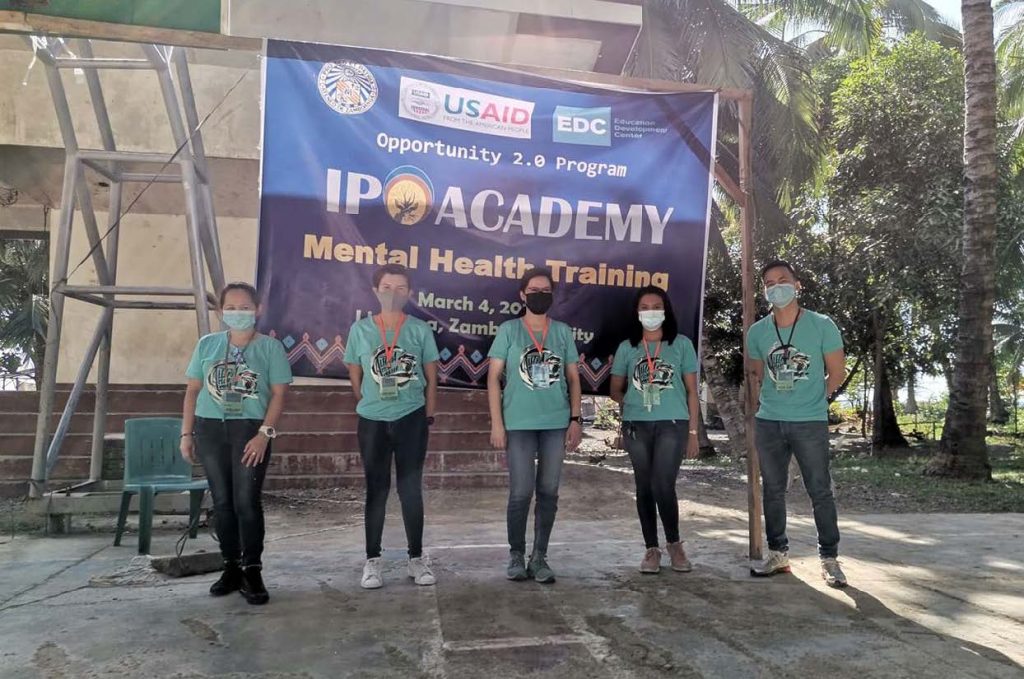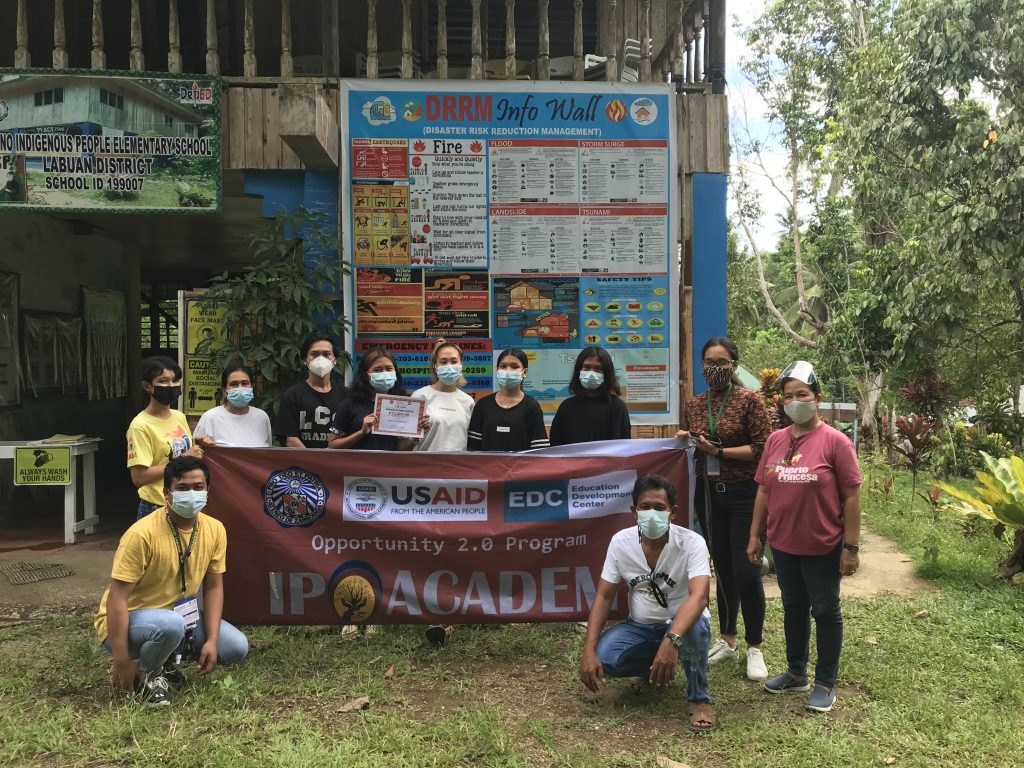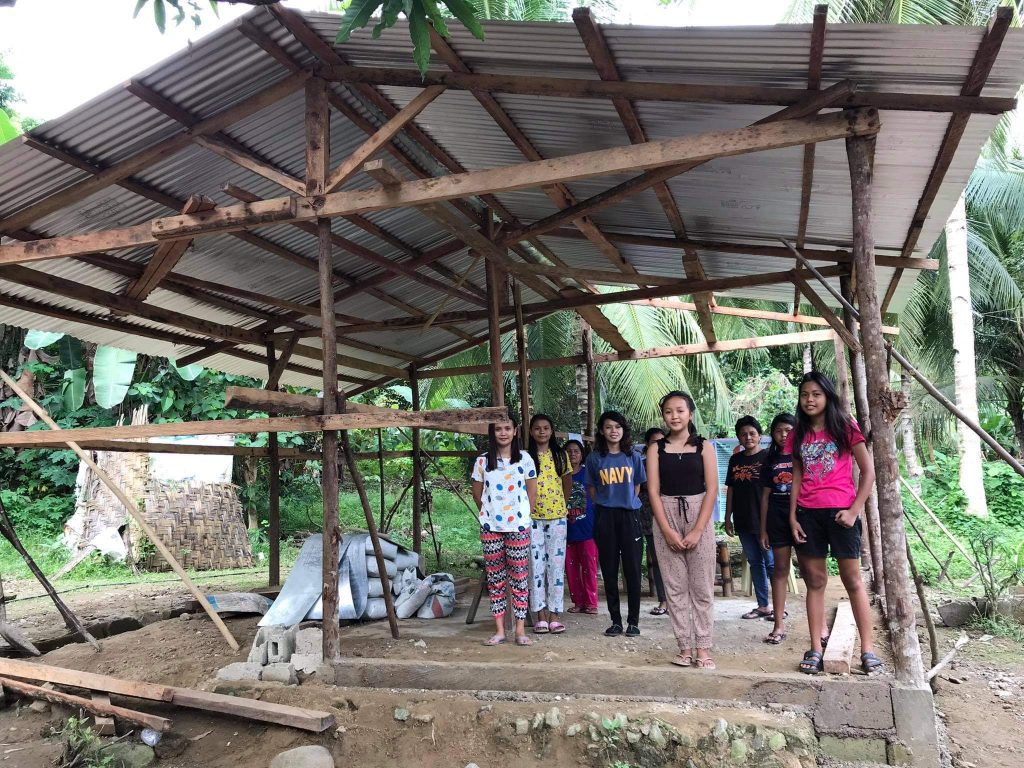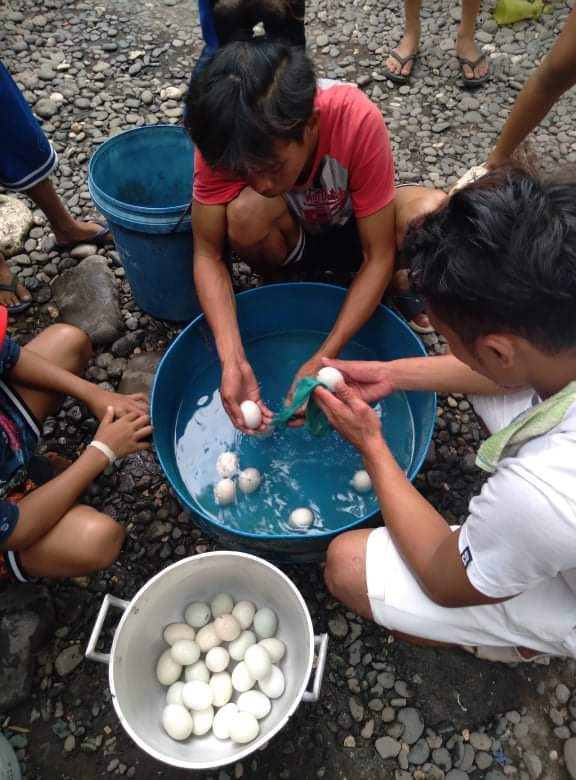Indigenous peoples in the Philippines had their livelihood disrupted due to COVID-19 restrictions since2020, worsening their already disadvantaged condition. Armed conflict over the years including the Zamboanga City siege in 2013 displaced more than 20,000 IP families. Affected populations struggled to find housing, and access to education and livelihood. Challenges in water supplies, sanitation, and hygiene were also prevalent. The number of out-of-school youth in Zamboanga City increased especially with the added challenges brought by the pandemic. To address these, IP leaders worked with a local higher education institution, Ateneo de Zamboanga University (ADZU), on a youth-centered program.

ADZU designed the Indigenous Peoples (IP) Academy together with the National Commission onIndigenous Peoples (NCIP), barangay leaders, Sangguniang Kabataan, and Indigenous PeoplesMandatory Representatives (IPMR). Meanwhile, USAID Opportunity 2.0 supported the initiative through its grants program that aimed to strengthen local actors around vulnerable youth in the Philippines.
“The city NCIP monitored the implementation of the project (IP Academy), ensuring that no IP right has been violated. The barangay officials and the IPMR were consulted. [They also] supported the operation of the program [by providing] a spacious venue for the training to ensure social distancing including break-out groups for workshops,” said Ms. Loreta Sta. Teresa, who was in-charge of the Academy’s six-month run, highlighted the project’s multi-sectoral design.

At least 50 out-of-school youth were engaged through the IP Academy with the help of the USAIDOpportunity 2.0 grant. They led a COVID-19 Information Education Campaign following ADZU’s survey which showed that 79.5 percent of the barangays’ population are not involved in the prevention and mitigation of COVID-19.
In addition to the COVID-19 campaign, IP Academy allowed the youth to analyze pressing issues in their community and come up with short-term community activity proposals to address them.
- Youth noted the lack of infrastructure in their barangays, which hindered the transport of produce to the market, making family livelihoods difficult. In collaboration with barangays, the youth volunteered labor to cement some stretches of the village roads.
- They also pushed to construct washrooms for the community. A designated Youth Meeting Center was also established.
- The youth also came up with a recycling program, and a vegetable gardening program to provide fresh vegetables for the community. Some also started a small piggery and a chicken buy and sell business, and sold balut motomis (sweet balut).
- Some also trained on wellness services like manicure, pedicure, and haircut as other livelihood options.
- They also learned indigenous instruments and enrich their knowledge of their culture.
- Other youth also initiated learning sessions with daycare pupils who were not able to go to formal school because of the pandemic.

“IP OSY significantly play important roles in nation-building. They have the power to decide the kind of nation that they envision. It only takes proper opportunity and venue for them to lead and make change for the better. It would be a great waste of human resource, if not given the opportunity,” Ms. Eta said. “IP OSY in our country, if given the proper opportunity; like proper, relevant and inclusive education, culture-based skills training and assistance needed, like what the USAID Opportunity 2.0 provided – I believe that these OSY may truly contribute in nation-building,” she added.
ADZU aims to continue the program for the IP youth. Currently, some of the IP youth’s projects, such as the community daycare sessions and balut motomis (sweet balut) business, have been discontinued because
of inadequate funds, and because majority of the youth have found full-time jobs. Coordination with the appropriate offices is being done to sustain the rest of the youth’s agriculture-based entrepreneurship
projects.

According to Director Marilou Floriza, as a higher education institution in Zamboanga City with a successful extension program, ADZU is committed to upholding indigenous knowledge, systems, and practices for the IP youth as they are expected to become future leaders of the community.#

